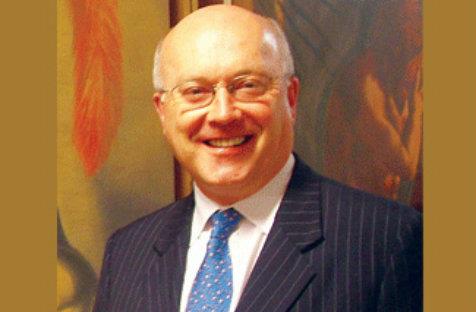George Brandis is showing support for the controversial Melba Foundation, which was defunded after peer review.
Peter Craven is a man of considerable gravitas. Arguably Australia’s best-known critic, Craven’s authoritative judgment and compendious erudition make him a feared and respected literary arbiter.
So when Craven penned an article for Fairfax entitled ‘Coalition victory could usher in a new creative era‘, the arts industry took notice.
The article mentioned a fundraising dinner attended by a number of prominent arts figures, at which the Coalition’s Arts spokesman George Brandis apparently gave an address.
Craven was very impressed with Senator Brandis. He writes that:
‘The good news – piquant news for people who honour a Whitlamite legacy with the arts – is that George Brandis showed signs of being a better arts minister than we have seen in the longest time.’
Craven’s enthusiasm was fired by Brandis’ address. The Senator apparently argued strongly for the intrinsic value of the arts, a message understandably welcomed by those present.
‘He said that the arts were not to be justified because they brought in tourism, or played magic tricks with the economy, or contributed to the light seen from our region: they were to be justified simply because they were the arts and this made them of intrinsic value.
The speech left a distinct – non-partisan – fraction of the audience wanting to cheer.’
I’m not sure how Senator Brandis, a man with very definite views about politics, would feel about honouring the ‘Whitlamite legacy’. Craven also appears to equate ‘the longest time’ with the term of the Labor government, given that Brandis was actually the outgoing Arts Minister under John Howard in 2007.
Even so, Craven’s article gives us some clues about what a Coalition arts ministry under George Brandis might look like – important clues, given that the Coalition has yet to release an arts policy in the run-up to this September’s election.
The fact that George Brandis was at this event at all is a powerful signal about a certain direction in Liberal arts policy. That direction is unashamedly elitist. As Craven writes, the dinner was ‘at Jeanne Pratt’s Raheen mansion recently in honour of the Melba Foundation. Melba happens to produce the best classical CDs in the country and it also happens to have had its throat cut funding-wise by the Gillard government.’
The Melba Foundation does indeed produce classical music CDs and thereby hangs a very interesting tale. The record label boasts a list of friends in high places that reads like the pages of Who’s Who. Former Liberal Arts minister Richard Alston has been a Chairman, and its current patrons and ‘ambassadors’ include luminaries such as Governor-General Quentin Bryce, film-maker Baz Luhrmann and former President of the World Bank, James Wolfensohn.
In the early 2000s, Melba gained the ear of federal politicians, and, eventually, millions of dollars of Commonwealth funding. Melba was first funded by the Howard government under Helen Coonan in 2004, receiving $10 million over five years. The funding was not peer-reviewed under normal Australia Council processes, but instead flowed directly from a special new line-item in the Australia Council’s budget. Melba’s special deal was then renewed by Peter Garrett in 2009, before finally being killed off by Simon Crean in 2012.
Tax-payers did not appear to get great value for money. A detailed investigation of Melba’s activities by Samantha Randell, a researcher at the Australian Independent Record Labels Association, found that despite the millions in funding, Melba had managed to sell only a few hundred CDs. Randell wrote that:
‘In the 2009-2010 financial year Melba recordings produced seven CDs — They received $1 million dollars in government funding to do so, as well as over $40,000 in patronage. From the sales of the seven CDs they made around $3500. That’s it. That means they were making $500 on each CD and at say $20 a CD, selling only 25 of each CD. I’ve worked gigs at the likes of the Workers Club and sold more CDs than that. That equates to $142,000 for the creation of each CD. So, if you do happen to be the proud owner of one of these CDs, hold onto that disc. As far as the maths is concerned it’s worth $5500.’
In 2012, Simon Crean cancelled Melba’s special line-item in the arts budget, and insisted that the Foundation take its chances in peer review like every other record label in the country. Melba was not successful.
Ever since, Melba’s famous friends have been railing against the supposed injustice of that decision. In his article last week, Craven was at it again, writing that ‘the foundation looked like being relegated to the slag pile of Australia Council handouts (where the envy of invidious competitors never does Melba much good).’ That’s the context behind Craven’s arguments that ‘the high arts have not prospered under Labor.’
There’s no evidence for this assertion. Under Labor, funding for the Australia Council has increased from $161 million in John Howard’s final budget of 2007-08 to $219 million this year. Funding for the national cultural institutions like the National Gallery and the National Museum has also increased in real terms. On any sensible definition, the Australia Council’s division of funding is heavily weighted towards the high arts, with the largest recipients including manifestly high-art institutions like Opera Australia, the Australian Ballet and the state symphony orchestras. Contemporary music, screen and game design have also been rewarded, though one suspects Craven doesn’t see these artforms as quite so deserving of taxpayer support.
In fact, Melba is one of the few cultural organisations that has lost its funding during Labor’s tenure. The reason is that Melba’s application was knocked back in peer review.
All of which makes the Melba Foundation a litmus test for the Coalition’s arts policy. If, as Craven is implying, George Brandis is proposing to restore Melba’s funding, it will signal a major move away from Labor’s Creative Australia, and towards funding for the high arts and the Coalition’s friends.
As for Senator Brandis, at this stage he’s keeping mum. ArtsHub approached Senator Brandis regarding the Melba Foundation dinner, but at the time of writing, no response had been received. In an interview in March, Brandis told me that the Coalition’s arts policy will be based around ‘respect of the integrity of the arts, the sector and of artists’ and ‘regard of the arts as one of the great expressions of Australian excellence’. He also defended peer review.





